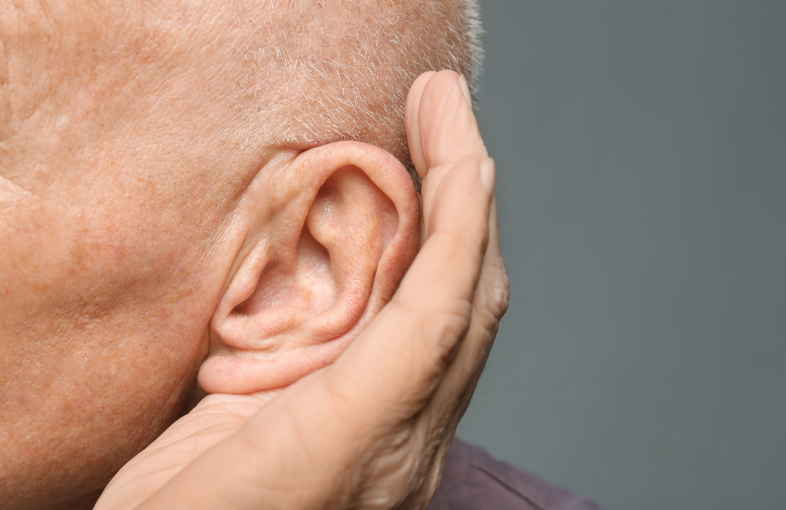Presbycusis refers to the age-related gradual impairment of hearing from both ears. It is the leading cause of hearing loss worldwide, and about one-third of the US population aged 70 or more is affected by presbycusis.
Commonly, it occurs due to age-related changes in the auditory nerve and inner ear. However, the risk factors may also include heart diseases, blood pressure problems, diabetes mellitus, and certain vascular disorders as they can compromise the blood supply to our ears.
In this blog, we’ll discuss how we can get aware of our symptoms and what we can do to prevent or manage this condition.
Symptoms of presbycusis
As the symptoms of presbycusis occur gradually, it is hard to get aware of our symptoms in the early phase of the disease. We may experience the following symptoms,
- Mumbled hearing of other’s speech.
- Difficulty in differentiating high-pitched sounds; for instance, “s” and “th” sounds
- Difficult hearing sounds with background noise.
- Ringing or hissing sounds in both ears (Tinnitus).
- Loud sounds may perceive as annoying and disturbing.
Prevention from presbycusis in old age
Certain preventive measures can be helpful in the elderly to lower the incidence of this disease, such as the following,
- Regular hearing tests in the elderly can help analyze our ability to perceive the different quality of sounds. HearScreen USA is an online mobile app that can provide our hearing score based on our hearing ability. In this way, we can be aware of any possible hearing loss of old age.
- Use earplugs or muffs while facing potentially harmful sounds; for example, firearms, heavy machine sounds, snowmobiles, etc.
- Reduce the amount of time of exposure to loud sounds.
- Control blood pressure and glucose levels in old age.
- Treat any underlying cause like heart disease or vascular disorders.
Is there any treatment for presbycusis?
It is not possible to cure presbycusis; however, certain measures can be used to alleviate the symptoms of the disease. Some of these measures are mentioned below,
- Hearing aids can be recommended for the elderly diagnosed with presbycusis. These devices can also help decrease the tinnitus often experienced in this disease. We should always keep in mind that a hearing aid needs to be selected by an otolaryngologist and audiologist.
- Assisted hearing devices like built-in telephone amplifiers and FM systems can also be useful in the elders suffering from presbycusis.
- Cochlear implants can be considered in patients with hearing loss refractory to hearing aids.
- Lip reading exercises can also help in speech discrimination. We can concentrate on the speaker’s lip movements during the conversation to assess the possible words spoken by a speaker.
Conclusion:
Age-related gradual decline in hearing loss, termed presbycusis, is quite prevalent in the US population. We commonly experience decreased hearing, reduced differentiation of high-pitched sounds, tinnitus, and others in this disease. Apps like HearScreen USA can be used for regular screening through hearing tests, ensuring the early diagnosis of the disease. Moreover, hearing aids, cochlear implants, assisted hearing devices, and lip-reading can also play a significant role in managing presbycusis in old age.

